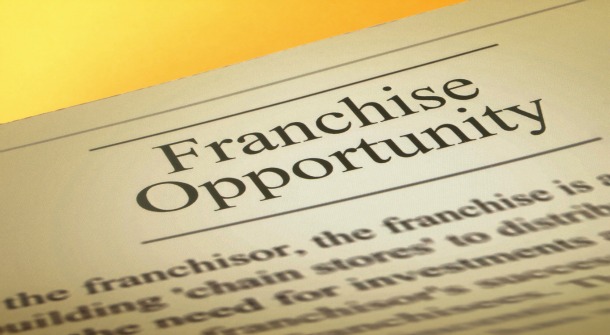International Franchise Association
The International Franchise Association (IFA), established in 1960, has set for itself the mission to protect, enhance and promote franchising. The head office of the association is in Washington, DC, and it actively advocates the promotion of pro-franchising policies at the state, federal and municipal levels.
The IFA has established for itself a leadership position in the franchising industry and is at the forefront in providing guiding principles to franchisors and franchisees for conducting business successfully and profitably.
The IFA also endeavours to be the pre-eminent voice and acknowledged leader for franchising worldwide.

The franchising sector is a significant part of the Australian economy
Franchising in Australia has grown exponentially over the last half century to achieve the position of being one of the most important sectors of the economy. Starting off in the early 1970s with American chains such as KFC, Pizza Hut and McDonald’s, the franchise industry grew by leaps and bounds and Australia today has the second largest number (just behind New Zealand) of franchise outlets per capita in the world.
The number of franchise systems grew from 693 in 1998 to 1160 in 2014, while the total number of franchisees increased from 43,800 to 79,000 in the same period. The number includes 70,000 business format franchised units and an additional 9000 company owned units. Additionally, there are 6120 fuel retail units and 4598 motor vehicle retail outlets. Given these figures it is not surprising that the number of franchise outlets per capita in Australia is thrice that in the United States.
The sales turnover of business format franchising units grew to $65 billion in 2014, up from $62 billion in 2011. In addition to this figure motor vehicle sales were at $38 billion and fuel retail stood at $41 billion, making for a franchising sector of $144 billion which accounts for almost 10% of the GDP of the country. The franchising industry employed 461,000 people in 2014, 155,000 of whom were permanent full-time employees, 125,000 permanent part-time and 181,000 casual employees.
Success of franchising in Australia
Chairman of the Franchise Council of Australia, Warren Wilmot, has this to say regarding the success of franchising in the country, “Geographically, Australia is the world’s sixth largest country so solid business networks are required to service the market effectively. Franchising makes an important contribution not just in capital cities but in regional centres and rural Australia. Strong systems and compliance and substantial charitable and community involvement make the franchise business excellent corporate citizens at federal, state and local community levels. It is these attributes that make brands with a national footprint attractive to investors who may otherwise not have the opportunity to work for themselves”.
The core of the franchise concept is the idea of the brand. This is the face which is presented to the customer and it evokes trust, confidence and comfort. The brand is represented by a symbol or a logo but ultimately it is intangible and stands for the consistency, standardisation and familiarity which represents the attraction for the customer.
A business format franchised unit has a complete plan for managing and operating the establishment, furnished by the franchisor. There is very little scope for deviation from the prescribed formula and the success of the outlet is greatly influenced by the franchisee’s ability to adhere to the rules and the franchisor’s capacity to implement them.
The reason for the consistent success of the franchise model of business in Australia is the self-sufficient and entrepreneurial spirit of its citizens. The government has played its part and implemented a robust framework for this sector which ensures that both the franchisor and the franchisee have to perform their respective roles in a fair manner.

Lorelle F. Director, Franchising Centre, Griffith University has this to say about the franchising sector based on a survey conducted recently, “The Franchising Australia 2014 survey has revealed some interesting facts about franchising in this country. Australia is often called the ‘franchise capital of the world’ because we have one of the highest number of franchisors per capita in the world….”.
Commenting on the drop in number of franchisors from 1180 in 2012 to 1160 in 2014 and an increase in franchise units from 73,000 to 79,000 in the same period she goes on to say, “So the franchise sector is expanding but the number of franchise brands is consolidating. Believe it or not, this is actually a perfect outcome for Australia as we need fewer, but stronger, franchise brands. Brands that achieve economies of scale and therefore brands that are more sustainable in the long run.”
Franchisors and franchisees have successfully collaborated and evolved a mutually beneficial relationship which enables the franchisor to expand its business while minimising capital outlays and permits individuals with an entrepreneurial bent to start a relatively risk-free business.
Different business models in franchising
Franchising, as a way of conducting business, can have several variations. While the nature of the franchise agreement would be chiefly dependent upon the requirements of the franchisor and to a lesser extent that of the franchisee, the main criteria which determines the type of arrangement is the product being sold.
If a car manufacturer appoints a dealer to sell cars, the franchise agreement would be between the manufacturer and the retailer, and would be classified as a product or trade name franchise.
A situation where the franchisee manufactures goods under license and distributes them to consumers or retailers would require a manufacturer-wholesaler type of franchise arrangement. This arrangement is also classified as a product or trade name franchise.
A retailer-retailer or business format franchise arrangement is one where a franchisor markets a product through multiple outlets which have a specific design and ambience and which operate according to a very strict set of common rules.
The business format franchise is the most common and fastest growing segment of the franchise industry. To a layman a reference to a franchise arrangement refers to this particular business model. It is the most common type by far and has contributed in a very significant fashion to the growth of the retail sector in Australia. The nature of the business format franchise agreement dictates that the franchisee will abide by a very strict set of rules. In fact the success of a franchisee is greatly dependent upon his ability to inculcate the standard operating procedures designed by the franchisor.
The business format franchise arrangement has the following features:
- A customer is drawn to a retail establishment by the assurance that she will experience a standardised product. To achieve this end the franchisor has to ensure that every facet of the franchisee’s establishment is in sync with the stipulations laid down. The agreement executed between the franchisor and franchisee considers this aspect sacrosanct and the entire arrangement is based on the franchisee meeting this requirement.
- The franchisee gains tremendously in that he gets access to the brand recognition enjoyed by the franchisor. The brand is an asset built by the franchisor over a number of years or even decades and it is the single critical factor upon which the entire agreement is based.
- When the franchisor gives the franchisee permission to use his brand he will go to the greatest lengths to ensure that its value is not lessened by his franchisee’s actions. Towards this end, the franchisor will monitor the activities of the franchisee and work with him to ensure their common success.
- This arrangement is an ideal one for entrepreneurs who do not want to start a business from scratch. A franchise arrangement will give them an opportunity to start a commercial enterprise which is based on a tried and trusted model and has enjoyed success over the years. Of course, the franchisee has to follow the rules laid down in the agreement and this may hamper his independence and creativity. However, strict adherence to the procedures laid down is the foundation on which this arrangement is built.
Regulatory framework for franchise arrangements
The Franchising Code of Conduct was implemented in October, 1998 and makes Australia a country which has one of the strongest regulatory frameworks for the franchise industry. It enables aspiring entrepreneurs to establish a business with the confidence that they are protected by a number of regulations drafted specifically for the purpose. Some of the relevant provisions of the code are:
- The franchisee has a 7 day “cooling-off” period within which window of time he has the option of withdrawing from the franchising agreement which he has entered into.
- At least 14 days before the franchise agreement is executed, the franchisor is required to furnish to the prospective franchisee a disclosure document and a draft of the proposed agreement.
- The disclosure document contains a great deal of information which would help the franchisee make an informed decision. The details required to be furnished in this document include franchisor’s company director details, on-going litigation, territory details, obligations of franchisor and franchisee, and dispute resolution and termination provisions.
Furthermore, in January 2015 an updated Code of Conduct was put into effect which imposed heavy fines on franchisors if they did not follow the required stipulations.
Prospects of the franchising industry
The performance of this sector over the years has been exemplary. Franchisees in a variety of fields have provided a range of high quality goods and service across the country. This has been of immense benefit to consumers. In addition to this, the total sales made at $144 billion is close to 10% of the nation’s GDP, making the franchise industry one of the largest sectors of the economy. This sector also generates a substantial number of jobs and in 2014 employees in the franchising industry numbered 461,000.
An important reason for the success of this sector is the framework of rules and regulations imposed by the government to ensure that the bureaucracy makes the establishment of a small or medium sized business an easy process. The fact that the government also actively protects the rights of the franchisees has helped in no small measure.
In view of the number of advantages enjoyed by the franchising industry, its continued success and growth seems assured.



 This information will never be shared to third parties
This information will never be shared to third parties